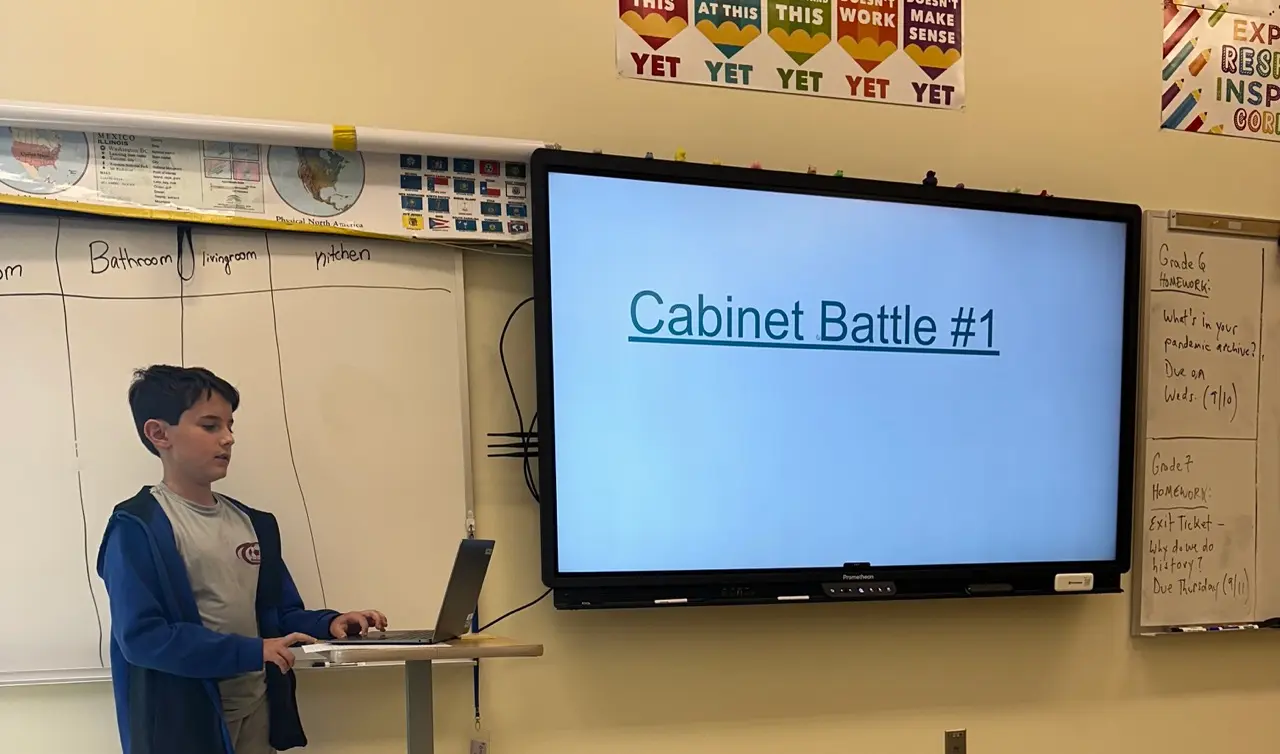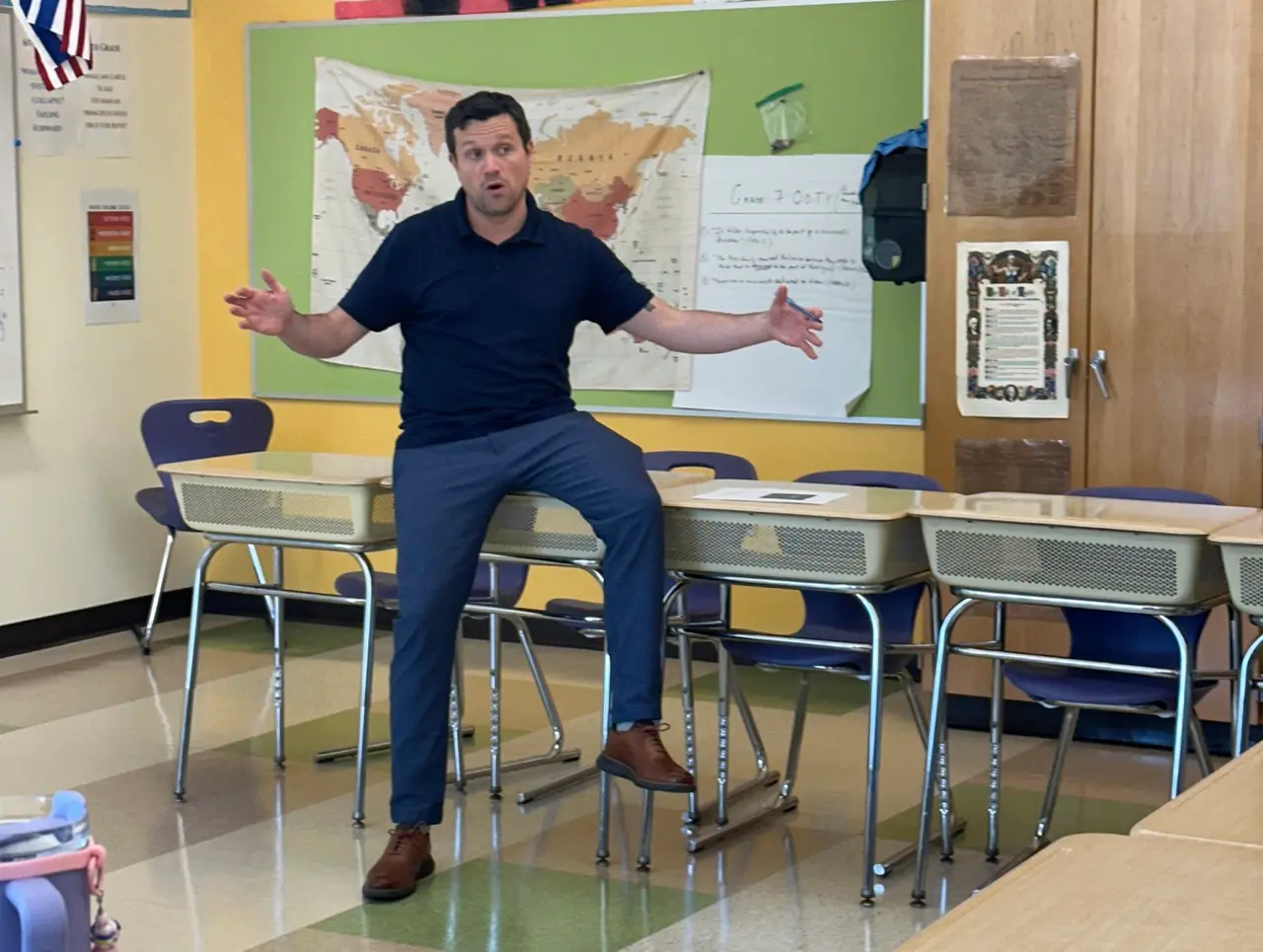Each student selects a song from the past and researches its historical background to learn about the era in which it was written and the effect it may have had at that time and place in history. By way of example, Scott first presented 99 Luftballons by Nena, and then led a discussion on the Cold War and the global threat of mutually assured destruction. In response, the class independently decided they would also like to create a visual timeline to document their research throughout the elective, so that will now be incorporated into their work.

Jason O. was the first student to make his presentation, choosing Lin-Manuel Miranda’s Cabinet Battle #1 from the musical Hamilton. Jason explained how he became interested in the music (his sister “dragged him into it”), and how he has come to love Miranda’s music and “knows every line of this song by heart.”
Jason’s enthusiasm for the song was obvious, and he kept everyone engaged as he deciphered the lyrics through various quotes, explained the battle between North and South, and captured the energy and urgency of America’s founding fathers as they debated difficult topics.

The magic of this elective is that students don’t just memorize facts for an exam. They connect songs to real historical events and make them understandable for their classmates.
Through Playlist Time Machine, our Middle Schoolers are discovering that history isn’t confined to textbooks—it’s alive in culture, language, and music. By analyzing songs from different eras, they’re developing critical thinking skills, historical empathy, and an appreciation for how art reflects society.
As Jason demonstrated, sometimes the best way to understand the past is by listening to it.

